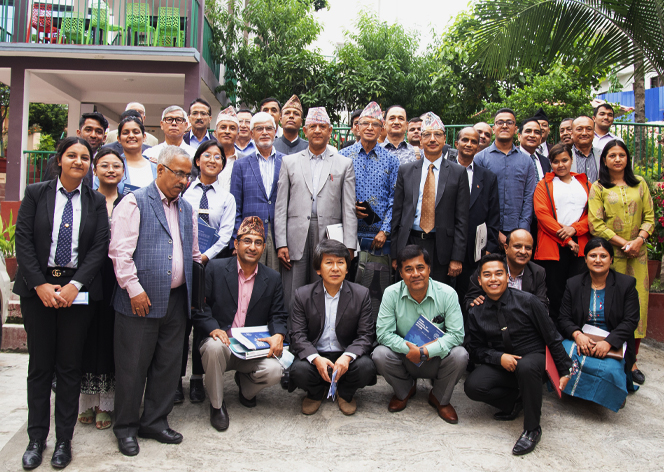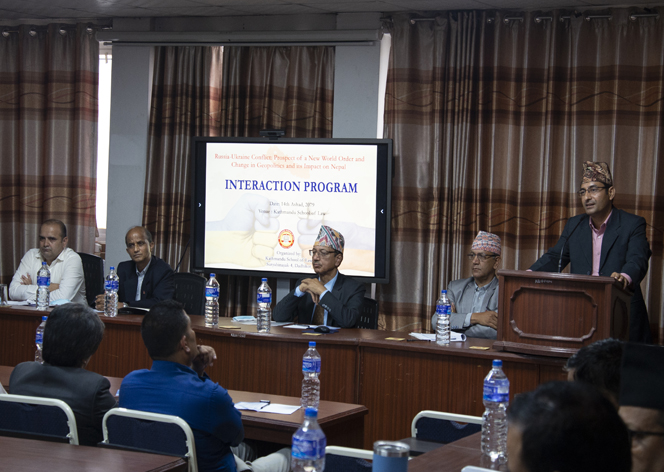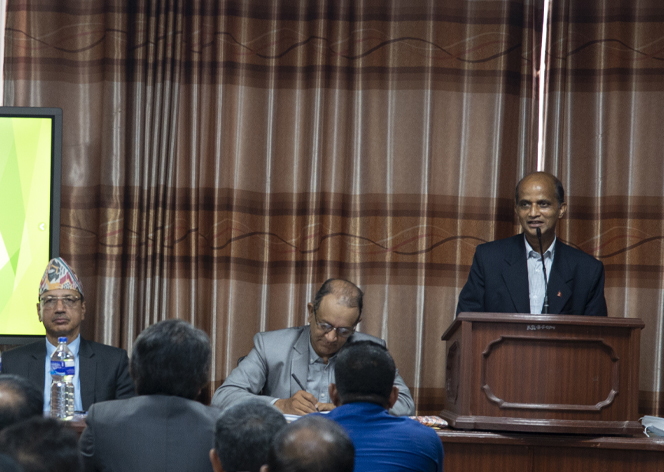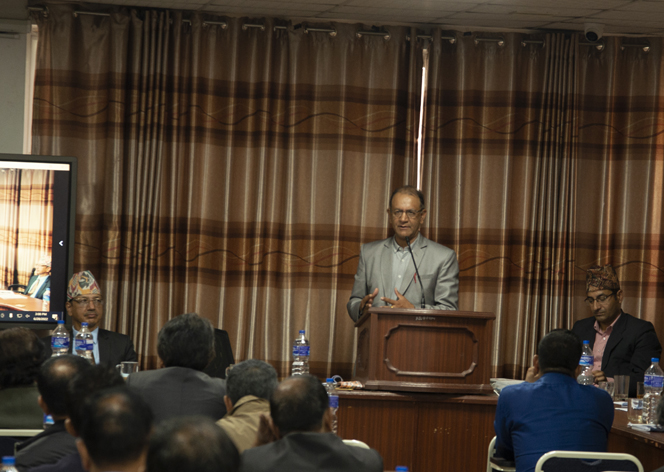Interaction program on "Russia-Ukraine Conflict"

Is there any prospect of the New World Order?
On 28 June 2022, Kathmandu School of Law Policy and Legal Research Center held an interaction program on "Russia-Ukraine Conflict: Prospect of a New World Order and Change in Geopolitics and its impact on Nepal", with the participation of renowned experts on international relations, diplomacy and geopolitics including career diplomats, former ambassadors, chairperson of constitutional bodies, senior most government officials including Secretary General of Federal Parliament, former chief secretary, secretary and chiefs of the government Ministries and departments, former chief and deputies of Nepali security agencies (Nepal Army, Nepal Police, Armed Police Force and National Investigation Department), security and foreign relations analyst, academicians, experts and journalists contributing to the field of international affairs and foreign policy in Nepal.
Program began with welcoming remarks from Associate Professor Pradeep Pathak, Coordinator of the KSL Policy and Legal Research Center. He introduced the program, presented glimpses of the current developments and world affairs surrounding Russia-Ukraine conflict and highlighted on the objectives of the program.

Presenting his paper, Nepal's Former Ambassador to Thailand and Senior Research Fellow of Policy Research Institute, Nepal Dr. Khaga Nath Adhikari presented different theories and viewpoints with reference to world order, China-Russia axis, Russian invasion of Ukraine and implications for Nepal. He also resonated that Nepal's support for the Resolution against Russia at the UN General Assembly is a desired step in line with the principles of non-alignment, non-interference, sovereignty and territorial integrity, upheld as sacrosanct in the UN Charter, and therefore, must be fully respected by all the member states.

In response to his paper, Prof. Dr. Yubaraj Sangroula, Executive Director of KSL, urged for an empirical, epistemological research to identify the root causes of Russia-Ukraine conflict and come out with multidisciplinary consultation and pragmatic solution with regards to dealing with the political, economical and psychological hegemony and Nepal's approach to responding to the international issues which might have greater implications and repercussions. He also presented his thoughts on the theory of trilateralism and how Nepal can take advantage of its strategic geo-political location and act as a pool between two big neighbouring countries.

Putting forward his views on the paper, editor, writer, columnist and foreign relation analyst Mr. Mahabir Poudyal opined that there is already a challenge from the emerging world powers on the existing world order and it will reach at the boiling point at some period of time and there will be a direct confrontation between China and the West to prevail in the international politics and shape the international world order.
However, the participants cautioned that the war on the scene is just a disguised America-China conflict to reign the world order. But whatever the global order the future holds, participants argued that Nepal has to recalibrate its foreign policy conduct, reemerging from a passive or reactive foreign policy to a mature, but proactive, approach in accordance with the "yam theory", realizing that China and India will definitely retain their own perspectives in their dealings with Nepal in the foreseeable future.
Putting his concluding remarks, Dr. Govind Prasad Kusum, Executive President of the Kathmandu School of Law, thanked the participants for their meaningful participation to enrich the discourse. He stressed on the need to shift from might-based world order to rules-based multilateral order. It might come in the form of multipolar concert of great powers but it should provide a framework within which the core interests and security concerns of all the powers could be peacefully negotiated and reconciled.
Further, KSL also launched its first comprehensive flagship journal-Asian Journal of International Affairs (AJIA) focusing on Asian affairs in international arena. It has become another milestone for academia in Asian region to express their research-based voices in the regional and global academic arena.
